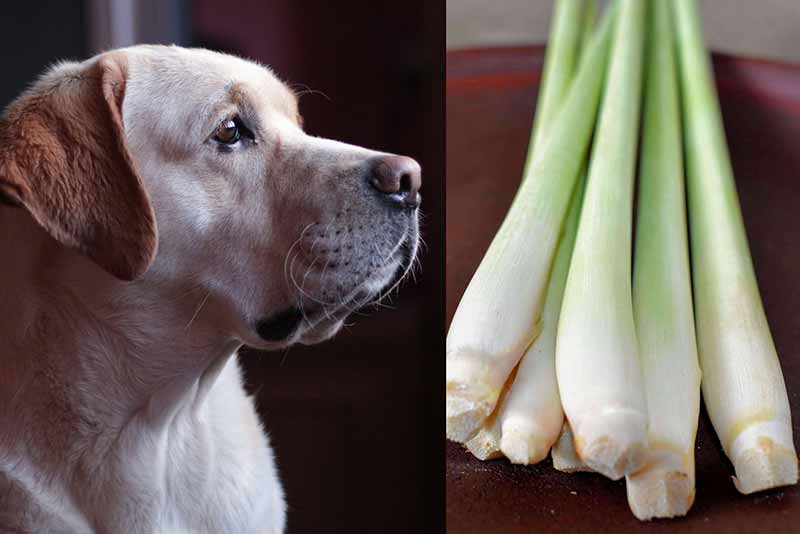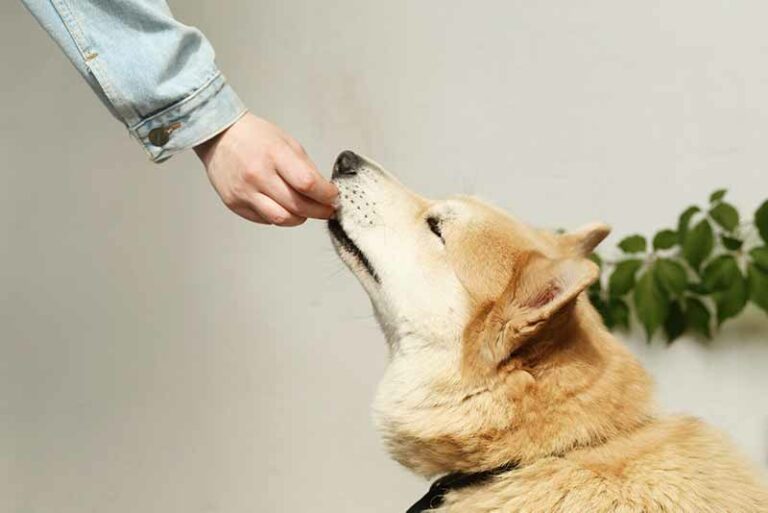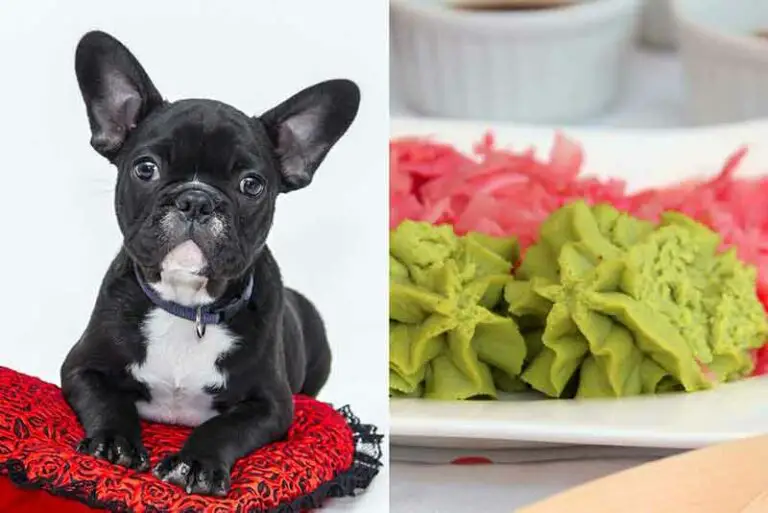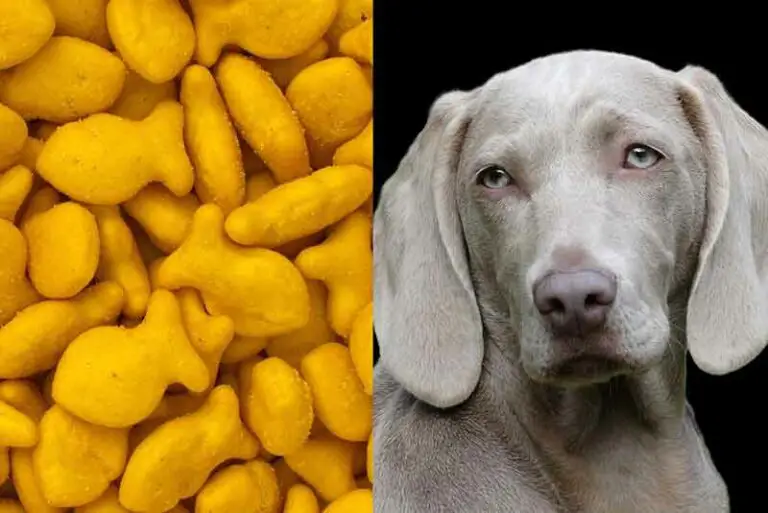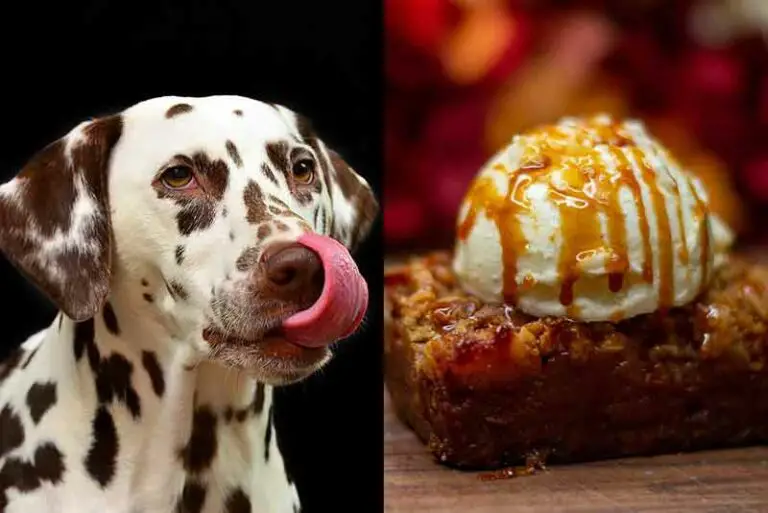Can Dogs Eat Lemongrass? Is It Safe?
When you take your pet dog out for a walk or just let them wander around your garden, you might have seen how the dog leans into different things and try to taste them. According to dog experts, whether it is a plant, a piece of leftover food, or even garbage, your puppy will try to taste it which is natural.
Dogs can be crazy eaters; they do not know what to eat and what not to, so it is not bizarre why they attempt tasing anything. However, if your pet dog munch, everything they see around could bother you as the owner. It will make you question why your pet doing it; moreover, will it cause any harm to the dog? This article will discover what will happen if your dog eats lemongrass.
Can dogs eat lemongrass? Is it safe? Lemongrass is a common herb in households, and this is generally not a safe plant for dogs to eat. We human beings add lemongrass to our food; in Asian countries. Although this is a healthy and delicious herb for humans, it doesn’t work the same for dogs.
Lemongrass contains cyanogenic glycosides and oils in the plant, which tend to be toxic for dogs. So if a dog eats lemongrass, it will most likely get an upset stomach. How dogs respond to eating lemongrass is different. While some have mild symptoms, some may also show severe symptoms, including fever and respiratory complications.
Eating some plants will not cause harm to dogs, but lemongrass is not healthy for them. However, eating a small piece of lemongrass will not threaten your dog’s life.
The amount they eat and how often they eat considerably matter when determining the consequences. So before getting panicked, first, you should pay attention to those facts.
So what will happen if your dog eats just a bit of lemongrass? What if there’s lemongrass in their food? To find all answers keep reading!
Can dogs eat lemongrass safely?
Generally speaking, letting your dog eat lemongrass is not healthy and safe. If it is safe for humans to eat, how is it different for dogs? To answer this question, it is essential to have a sound understanding of the lemongrass plant.
Lemongrass is a plant native to the African, Asian, and Australian continents. This plant is used in a wide array of dishes; it is also considered a medicinal herb. Oil extracted from lemongrass is used to make essential oils and aromatizers.
However, the oils contained within this plant are harmful to dogs, so you should not allow your puppy to eat lemongrass.
However, to get severe health complications, dogs have to eat a considerable amount of this plant; eating a small piece of lemongrass one time will not critically impact your dog.
Depending on the amount they eat, you will see the symptoms. Most of the time, the symptoms include an upset stomach, diarrhea, vomiting, lethargy, and reduced appetite.
Sometimes your dog might eat lemongrass accidentally, or you might put it into their meals without knowing that it is toxic to dogs. As pointed out, it will not harm your pet’s life.
There are safe ways to let dogs eat lemongrass, which we will be discussing in the latter part of the article. Nevertheless, avoiding them eating lemongrass as much as possible will always be the smartest move.
Is lemongrass bad for dogs?
Cyanogenic glycosides are natural plant toxins that are present in several edible plants, including lemongrass. Still, the correct processing methods help detoxify them. As said, lemongrass is an important staple for many cuisines, and we barely eat the plant raw.
Instead, we cook, boil, ferment, or powder it before consuming it, so it becomes safe for us to eat. Even eating small quantities of raw lemongrass will not cause any harm to humans.
The digestive systems of dogs and humans do not function the same way. Therefore food that tends to cause no harm to humans could harm dogs and vice versa.
According to veterinarians, dogs are likely to produce up to 100 times the amount of acid than a human stomach, so how the body responds to what they eat will considerably differ.
Eating raw lemongrass will create toxins in the dogs’ digestive system as it contains cyanogenic glycosides, which is why we consider that lemongrass bad for dogs.
On an important note, the scale of how bad it is will depend on the amount and frequency your dog eats lemongrass. Suppose you have lemongrass in your backyard, and it keeps eating the plant quite often; that could lead to severe consequences.
If the dog accidentally eats it once, it will likely face mild adverse outcomes such as vomiting and upset stomach, but nothing much more serious.
Why does my dog eat lemongrass?
Most of the time, dogs nibble on things for no reason. They are simply curious or perhaps hungry. So whatever it is, whether it is edible or not, dogs will attempt to taste it which is their instinct.
However, assume that you have lemongrass in your home and your dog eats the plants as a habit. If so, it will surely make you question why? If it is only a one-time thing, as mentioned, that is not something for you to worry about.
However, if the dog attempts to eat it over and over again, there should be an underlying reason.
According to experts, dogs generally tend to eat plants when they have an upset stomach; if they keep eating lemongrass constantly, that can be a sign of a gastrointestinal problem.
Eating plants frequently is a way they induce vomiting, so if you see your dog eating lemongrass repeatedly, it should be probably because the dog feels somewhat sick, and they attempt to reduce nausea.
Can dogs eat food with lemongrass?
Some dog owners feed their dogs with human food, and giving adequate amounts of human food apart from dog food to your pet dog will not cause any harm.
Speaking of human food, lemongrass is a common ingredient that can be seen in plenty of dishes, so there is a fair probability that your dog might ingest at least small amounts of lemongrass through food.
Previously we said that cooked lemongrass diminishes toxins, so does that mean dogs can eat food that includes lemongrass?
Consuming small quantities of lemongrass once in a while will not threaten your pup’s life. This article mentions that eating lemongrass will likely make your dog sick.
However, eating a small amount once will not lead to lemongrass poisoning and killing the dog. Lemongrass poisoning only happens if a dog consumes vast amounts of it.
Either way, if you give food to your dog with lemongrass, you must be extremely cautious. Although cooking reduces toxins in the plant, a dog’s digestive system could be different.
Moreover, lemongrass contains fiber, and excessive fiber makes dogs feel sick. So if you add lemongrass to their meals or feed them food that already has lemongrass, be very mindful of the quantity you give them and how often you give it to the dog.
If you feel guilty about giving your dog food that has lemongrass, the best thing to do would be not to give it. Moreover, if you have a puppy, it is better to avoid giving them lemongrass because they can be more prone to digestive issues.
Final thoughts
As we have come to the end of the article, let’s wrap things up with some final thoughts. If you read up to this point, now you might clearly understand whether dogs can eat lemongrass, if it is safe for them, and what the consequences would be if a dog eats lemongrass.
Lemongrass is a common herb used to flavor dishes and produces essential oils. Some of the natural chemical components in lemongrass are unhealthy for dogs, so we should not let dogs eat them.
But what if your dog accidentally eats lemongrass? If that is the case, first, you have to figure out the quantity they have consumed. If it is a small amount, you should not get stressed over it; your dog may vomit and show signs of nausea which will fade away after a short time.
However, suppose the dog shows constant signs of sickness, upset stomach, or breathing issues. In that case, it indicates they have eaten a larger amount. In such a scenario, ensure you take the dog to a veterinarian without hesitating.
The negative aftermath of your dog eating lemongrass depends on the quantity and frequency. Therefore if your dog accidentally eats lemongrass, do not panic; see how the dog responds to it and take action accordingly.
However, avoiding your dog eating lemongrass as much as possible is always good.
Thank your for reading this post. Stay tuned with Jack Russell Owner. See you next time!

